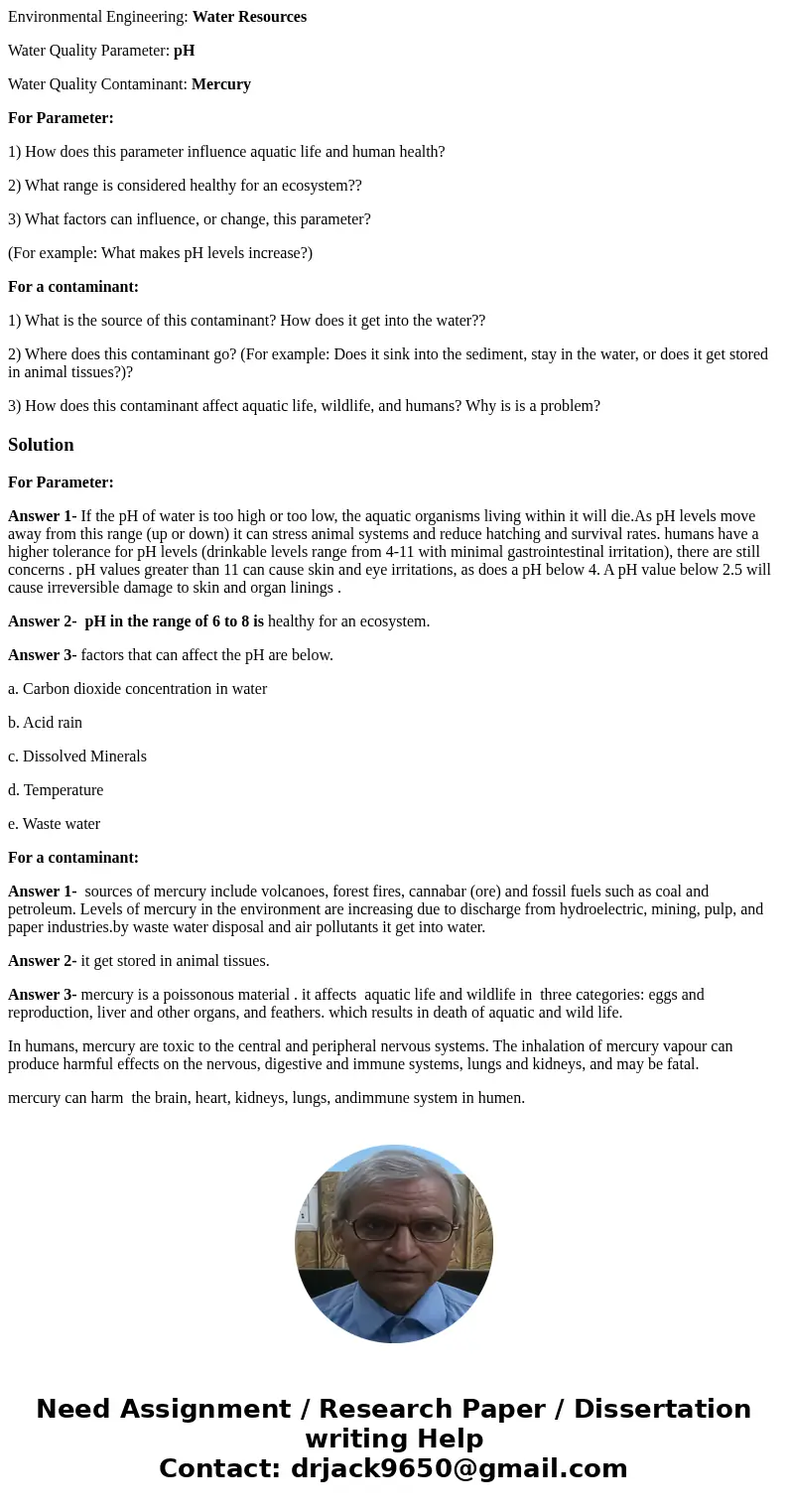Environmental Engineering Water Resources Water Quality Para
Environmental Engineering: Water Resources
Water Quality Parameter: pH
Water Quality Contaminant: Mercury
For Parameter:
1) How does this parameter influence aquatic life and human health?
2) What range is considered healthy for an ecosystem??
3) What factors can influence, or change, this parameter?
(For example: What makes pH levels increase?)
For a contaminant:
1) What is the source of this contaminant? How does it get into the water??
2) Where does this contaminant go? (For example: Does it sink into the sediment, stay in the water, or does it get stored in animal tissues?)?
3) How does this contaminant affect aquatic life, wildlife, and humans? Why is is a problem?
Solution
For Parameter:
Answer 1- If the pH of water is too high or too low, the aquatic organisms living within it will die.As pH levels move away from this range (up or down) it can stress animal systems and reduce hatching and survival rates. humans have a higher tolerance for pH levels (drinkable levels range from 4-11 with minimal gastrointestinal irritation), there are still concerns . pH values greater than 11 can cause skin and eye irritations, as does a pH below 4. A pH value below 2.5 will cause irreversible damage to skin and organ linings .
Answer 2- pH in the range of 6 to 8 is healthy for an ecosystem.
Answer 3- factors that can affect the pH are below.
a. Carbon dioxide concentration in water
b. Acid rain
c. Dissolved Minerals
d. Temperature
e. Waste water
For a contaminant:
Answer 1- sources of mercury include volcanoes, forest fires, cannabar (ore) and fossil fuels such as coal and petroleum. Levels of mercury in the environment are increasing due to discharge from hydroelectric, mining, pulp, and paper industries.by waste water disposal and air pollutants it get into water.
Answer 2- it get stored in animal tissues.
Answer 3- mercury is a poissonous material . it affects aquatic life and wildlife in three categories: eggs and reproduction, liver and other organs, and feathers. which results in death of aquatic and wild life.
In humans, mercury are toxic to the central and peripheral nervous systems. The inhalation of mercury vapour can produce harmful effects on the nervous, digestive and immune systems, lungs and kidneys, and may be fatal.
mercury can harm the brain, heart, kidneys, lungs, andimmune system in humen.


 Homework Sourse
Homework Sourse